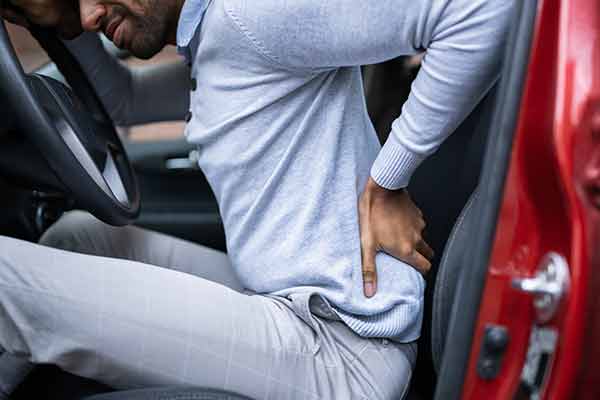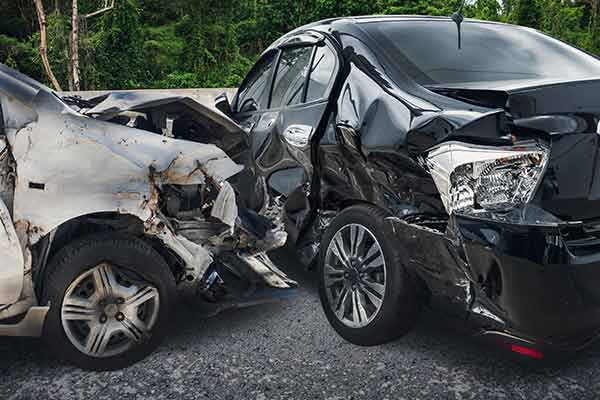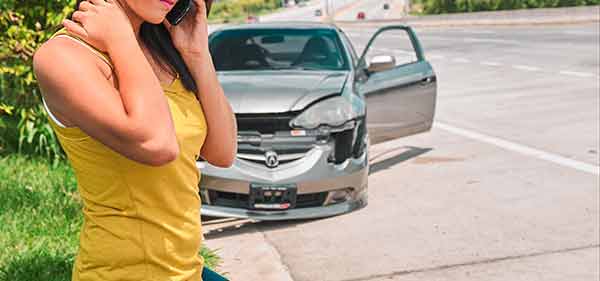What do you do after a motor vehicle accident in Fort Lauderdale? Do you settle with the other driver directly? Do you let your insurance company cover your medical expenses from your PIP policy? Or do you try to negotiate a higher settlement with the insurance adjuster? After all, Florida is a no-fault state, so you don't have to prove the other driver's negligence; instead, your own insurance pays for your damages. In reality, things are more complicated.
Insurance companies are for-profit entities and will fight you every step of the way. You may end up with huge hospital bills, which the PIP policy will not cover in a sufficient proportion, or with a lump sum settlement that is also inadequate. If you really want to obtain fair compensation for your expenses, pain and suffering, you should hire a Fort Lauderdale car accident lawyer at VG Law Group.
We have extensive experience in counseling accident victims and helping them navigate the complex legal labyrinth that ensues even after a common car accident. We know how to negotiate on your behalf and bring forth the arguments and evidence needed to win the maximum compensation possible in each case. Contact us today to schedule a FREE consultation with a Fort Lauderdale injury lawyer.
In most of the cases, car crashes happen because drivers do not use reasonable care when they are on the road. Thus, the top causes for accidents are:
This is a common type of negligent driver: distracted by their cell phone, listening to music or talking with the passengers in their car. A moment of not paying attention to the road may lead to a rear-end collision.
Reckless driving includes speeding above the limit, tailgating, and other types of aggressive driving. Things are made worse in inclement weather condition, when visibility is reduced and the roads are wet and slippery.
A lot of people drive for long hours - especially truck drivers. They are forced to meet unrealistic delivery deadlines and skip on rest hours. A drowsy driver is no longer alert - their reflexes are sluggish and their visibility is reduced.
Nobody should drink and drive. Unfortunately, it happens too many times (more to come in the statistics section below). A drunk driver is both reckless and impaired and can cause real tragedies on the roads.
In this situation, a collision between two vehicles is compounded by other drivers failing to brake or avoid the crashed cars. In many cases, a large commercial vehicle is involved, usually after blocking the road and spilling the merchandise it is loaded with.

Unfortunately, Florida holds two negative records: it is one of the states with the highest number of motor vehicle accidents and also one of the states with the highest percentage of uninsured drivers. These two factor make each type of accident difficult to settle by the victim without the guidance of an experienced car accident lawyer.
Thus, according to Florida Highway Safety and Motor Vehicles, there were a total of 401,867 auto accidents across the state, out of which:
These are very large numbers, and behind them are people who lost their lives or were left with crippling permanent injuries and the need for lifelong medical care and special assistance with activities of daily living. No matter how careful you are, there is always the risk of being involved in head-on collisions or other types of car accidents.
Thus, it is important to know your rights and to be aware of what you should do in order to receive compensation, either by out of court settlement or at the end of a personal injury lawsuit.

The no-fault principle appears to be simple on the surface. Each driver is responsible to carry personal injury protection and other types of liability insurance. But, as any auto accident attorney can explain to you, things are far from simple. Here are the minimum insurance levels required by law:
Looking at these numbers, it is clear that, in the aftermath of a major accident resulting in catastrophic injuries requiring a lot of time in hospital, you will incur more expenses than the amounts covered by insurance. Moreover, your insurance company may deny your PIP claim if you delayed seeking medical assistance for a number of days or try to include damages they do not cover, such as compensation for pain and suffering.
Fort Lauderdale car accident attorneys can help you understand your options and pursue the best legal path to get compensation for all the types of damages you are entitled to.

Notwithstanding the legal stipulations above, the state of Florida has a so-called "serious injury" threshold allowing victims of negligent drivers to seek compensation for damages from the fault party. The types of injuries falling under this special category include:
Therefore, you can file a personal injury claim against the other driver if you suffered catastrophic injuries in motor vehicle collisions, such as: spinal cord injuries, traumatic brain injuries, loss of limbs, etc. An experienced personal injury firm will look at your medical report and advise you whether you have a case against the responsible party.
Each car crash is unique. Accident injury victims may walk away with minor injuries, while vehicle repair costs may be very high. Or they may suffer very severe injuries that require surgery and weeks or even months spent in hospital.
What any law firm can tell you before analyzing your case is that you may recover expenses for:
On your own, you will probably not be able to negotiate a fair settlement even for all your physical injuries. Insurance adjusters know exactly how to persuade or intimidate you into accepting their settlement. They are not looking out for you, but for the bottom line of the company they are working for.
This is why you shouldn't even talk to the representative of the insurance company on your own. Even if you do not sign a document, whatever you say may be used against you in future negotiations or during a personal injury lawsuit.
Unfortunately, Florida holds the first place on the list of states with the highest percentage of uninsured drivers - 26.7%, according to the Insurance Information Institute. This means that there is a high chance of being involved in a collision with an uninsured or underinsured driver. In this case, your own insurance coverage for uninsured motorist will pay for your damages.
If you are met with difficulties, a Florida accident attorney can help you negotiate the settlement and obtain the monetary compensation you are entitled to.
In this section, we will give you helpful tips to maximize your chances of getting maximum compensation by avoiding some common mistakes and actions after an accident.
The first thing you should be concerned with is your health (and that of other people involved in the accident, if any). An emergency response team will assess the extent of your injuries and make the recommendation to take you to hospital if necessary. Follow their advice and let doctors perform all the tests they consider necessary.
At the same time, the police will prepare an accident report, including all the findings they can get at the scene. It will be very useful to you later on, when you hire an accident attorney to negotiate your compensation.
Even if you do not believe you are seriously injured, you should seek medical attention. Internal bleeding and internal organ damage may take hours or day to show symptoms. At the same time, if you delay seeking medical care, your insurance company may deny your PIP claim.
If you do not make your condition worse by moving, try to take as many photos and videos of your injuries and damages to your car. Talk to witnesses and persuade them to give you a statement of what they saw and make available the photographs they may have taken with their mobile phones.
You are obliged to notify your insurance company of any traffic accidents you are involved in. Thus, it is not surprising that you will be paid a visit by an insurance adjuster while you are still in hospital. They will take advantage of your vulnerable state and offer you a check and a waiver to sign. Do not sign the waiver and do not accept the check. Most probably, it will not even cover your economic damages, let alone the non-economic damages a personal injury attorney can negotiate for you.
A skilled personal injury lawyer can help you calculate the amount of economic and non-economic damages you may recover and prepare accident claims and file them on time with the company that issued your insurance policy. If you received a settlement offer, a Fort Lauderdale car accident lawyer can look over it and explain whether it offers adequate compensation, or they can negotiate a larger accident settlement on your behalf
You should not think twice about going to all the physical therapy sessions prescribed by your doctor or refilling your prescription. They are for your own good, in order to reach the maximum medical improvement. And you will recover these costs in compensatory damages. However, if you interrupt your treatment, the insurance company will use this as grounds to deny your claim for financial compensation.
Now, let us explain you the work behind the scenes that personal injury attorneys carry on behalf of their clients. From accident scenes to police reports and medical reports, lawyers look for all the elements and evidence they need to justify the amount of money they request for your bodily injuries and property damages.
For example, a drunk driver can be accused of gross negligence in certain circumstances. This means that you are eligible to receive punitive damages in a personal injury lawsuit, in amount of maximum $500,000. Gross negligence goes beyond basic driver error or driver negligence. Apart from not respecting the duty of care they have towards you, the responsible party committed a "conscious violation of other people's rights to safety", according to the Legal Information Institute.
First of all, a Fort Lauderdale car accident lawyer will collect all the data and documents that will support your case. They will contact the law enforcement officers present at the scene of the accident to obtain a copy of their report, as well as their description of the accident scene.
Secondly, the legal team will contact your doctors to find out the extent of your injuries, the estimated recovery time and potential long term impairment you may be left with, leading to reduced enjoyment of life, inability to perform your job.
In preparing a case against the fault driver for serious injuries, a car accident lawyer Fort Lauderdale may also collect other relevant pieces of evidence, such as:

Insurance companies have specially trained employees who know the law and how to interpret it in their favor. As a regular person, you do not have the arguments to counteract them. You may even be persuaded that they are doing you a big favor in settling your claim so quickly. An experienced personal injury litigation attorney will have the arguments that demonstrate the contrary: that you are not getting a fair deal and you deserve more adequate monetary compensation for your damages.
In the event that you suffered catastrophic injuries, you can file a personal injury lawsuit against the fault driver. This is where you really need professional representation in order to win your case. An experienced car accident lawyer Fort Lauderdale will organize the facts and present supporting evidence, persuading the jury that you deserve compensation for your current expenses and future care needs.
VG Law Group relies on the talents and background experience of a diverse group of lawyers, who have one common goal: to offer you the best legal representation and fight for your cause. We use a modern and aggressive approach in dealing with insurance companies and we are always available for our clients to answer their questions.
You don't have to worry if you afford to hire a personal injury attorney. At VG Law Group we work on a contingency base. This means that we only get paid after we win your case and you receive your settlement amount. So don't delay contacting us for a free case review, because you may run out of time. Florida has a statute of limitations of 4 (four) years from the date of the accident that caused your injuries, and you don't want to wait until the last moment. As time passes, witnesses' memories fade, evidence gets lost and it may become very hard to build your case.
Our mission is to get justice done and make sure that you receive fair compensation to cover your expenses, losses, pain and suffering. Any car accident leaves physical and emotional trauma behind. You should be able to heal with peace of mind, instead of worrying about paying hospital bills and long-term treatments. We are the personal injury attorneys who fight for you until we win your case, so call us now: 833-HELP-365!